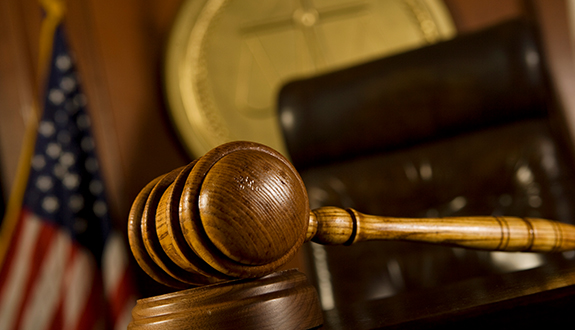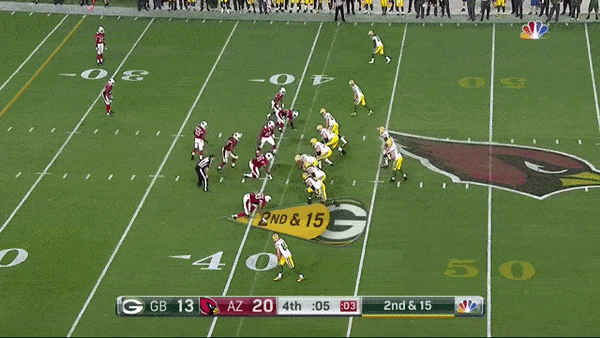Three Days and Several Lawsuits into the 2020 Presidential Election
- by
- Nov 05, 2020
- Politics, Supreme Court Rulings
- Reviewed by: Matt Riley

As we inch towards a victor in the 2020 presidential election, it appears that President Trump may be well-advised to make a last-minute attempt to hire Green Bay Packers quarterback, and longtime aspirational law student, Aaron Rodgers.
Why? Because President Trump is gearing up for some serious Hail Marys. Behind in some key swing states and losing ground in others, the Trump campaign has filed numerous lawsuits in numerous jurisdictions addressing alleged election integrity issues. The first to make contact with the Supreme Court of the United States — the body which may well ultimately decide this election — comes from Pennsylvania.
From a bird’s-eye view, this case concerns the relatively abstract question of who should have the final say in setting certain details of election law: the state legislature who drafted the laws or the state supreme court who interprets them. Through a more specific lens, the case before the United States Supreme Court stems from a Pennsylvania Supreme Court decision in which the court decided to allow late mail-in ballots to be counted, rather than rejected, so long as they were mailed on time and arrive by November 6, three days after election day. With Pennsylvania likely to be a game of inches, these late-arriving ballots could, in theory, be the deciding factor in whether Pennsylvania’s prized 20 electoral college votes will be allocated to Biden (which, alone, would be enough to carry him across the requisite 270 threshold and thus end the election in his favor) or to Trump (who as of this writing would still need some combination of other uncalled swing states like Arizona, Georgia, and Nevada).
But on a more strategic level, these lawsuits are really about excluding batches of votes that are likely to be overall unfavorable. The motivations for rejecting late-arrival ballots are often framed as “more time means more opportunity for fraud to work its way in.” But as the global pandemic has dragged on, it’s become increasingly clear that left-leaning voters are much more likely to opt into Covid-conscious voting alternatives, like voting by mail. The Atlantic cites Monmouth University research indicating that, as of late July, 60% of registered Democrat voters and only 28% of registered Republican voters described themselves as likely to mail their ballot; in Pennsylvania and North Carolina, two of the most important swing states, hundreds of thousands more Democrats than Republicans pursued mail-in options.
Republican strategists have for weeks eyed various ways to disqualify those identifiable blocks of disproportionately Democratic votes. Consider, for example, this case concerning Texas’ Harris County (which includes Houston) where a federal judge blocked an attempt to disqualify approximately 127,000 votes cast at “drive-thru” polling places set up to accommodate voters during the pandemic. Indeed, back in Pennsylvania, a second lawsuit seeks to block some mail-in votes that have been “cured,” meaning that there was originally a defect (e.g. signature or envelope issues) that the voter had then rectified. While these two cases have not yet made their way up to the Supreme Court, if Pennsylvania is carried by Biden then the latter very well may.
The Supreme Court has already once weighed in on the matter of Pennsylvania’s late-arriving mail-in ballots, by declining the Pennsylvania GOP’s request to accelerate the case up the appeals ladder. However, in their motion declining review, some conservative justices indicated that some matters may be found reviewable after the election concludes. Now, the tighter the race, the better the odds that these Pennsylvania ballots could be the deciding factor.
Meanwhile, any further delay fans the flames of aspersions already scorching across social media and fringe news outlets about the integrity of the election. In an extreme case, with enough confusion, litigation, and time pressure, the GOP-held Pennsylvania legislature could even wrest the decision from its constituents and pick the state’s electoral votes — and thus the President — themselves, as Lawrence Tabas, the Pennsylvania Republican Party’s chairman, has discussed.
The question at the root of the Supreme Court’s first 2020 Presidential Election case is framed by the Trump Campaign as follows:
“Given last night’s results, the vote in Pennsylvania may well determine the next President of the United States. And this Court, not the Pennsylvania Supreme Court, should have the final say on the relevant and dispositive legal questions.”
As we become mired in the coming days and weeks with complications and disinformation around an already complicated election, it will be more important than ever before to critically evaluate the real-world consequences of our answers to such abstract questions.
While not all lawyers will be called upon to help decide the fate of our nation, interpreting the law to sway intense legal battles in your client’s favor is just one thing you can look forward to as a lawyer. But before you can argue in front of the Supreme Court (or even in moot court), you’ll have to take the official LSAT! Blueprint Prep’s Live Course LSAT classes are taught by 98th+ percentile instructors—including some who are practicing lawyers! If you’d prefer to prep on your own, the Blueprint Self-Paced Course is the best online LSAT course for students and working professionals. If you’re not sure which LSAT course is right for you or if you’d like to learn more about private LSAT tutoring, schedule a free consultation with an LSAT Advisor to help walk you through your options!

Search the Blog

Free LSAT Practice Account
Sign up for a free Blueprint LSAT account and get access to a free trial of the Self-Paced Course and a free practice LSAT with a detailed score report, mind-blowing analytics, and explanatory videos.
Learn More
Popular Posts
-
logic games Game Over: LSAC Says Farewell to Logic Games
-
General LSAT Advice How to Get a 180 on the LSAT
-
Entertainment Revisiting Elle's LSAT Journey from Legally Blonde









